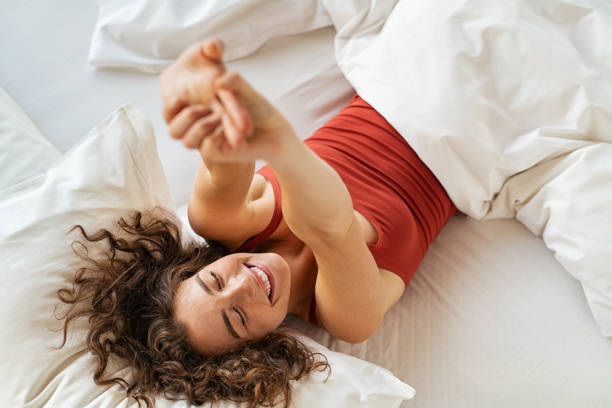People can have different reasons to exercise. For some, it’s about losing weight. For others, it may be about gaining strength and bigger muscles. Some people care most about their cardiovascular health, which makes sense when you consider how many people die of cardiovascular disease (such as heart attack and stroke) each year. Or you may be training to improve your endurance or agility, or to get better at a particular sport.
But how you sleep is just as crucial for your health. In fact, you have to get enough proper sleep each night for your workouts to even work as intended. All these fitness goals require sleep. Without sleep, the workouts don’t work and you’re actually just undermining your own health.
When you sleep, you’re giving your body the opportunity to conserve energy. You’re giving yourself time to recover from your strenuous workouts. You’re also allowing your muscles to repair themselves after you’ve stressed them during your exercises.
Your body produces the growth hormone when you sleep. This is the hormone that helps us all grow during our childhood and teenage years. And now that we’re older, it’s the same hormone that helps our body repair after a workout and also helps in building lean muscle. It’s a crucial hormone for active recovery.
But not everyone gets enough sleep, which is a problem. About 30 million Americans (that’s about 3 out of 10 adults) don’t get enough sleep. If you’re one of these people having trouble sleeping, then that means you’re actually sabotaging all your efforts at the nearby Crunch Fitness gym.
Exercise Can Help You Sleep
Just as sleeping can help with your workout effectiveness, working out can also help improve the quality of your sleep. You might have already experienced this effect yourself, when you get a great night’s sleep after a particularly strenuous workout session.
Various studies bear this out as well. One study involved adults that didn’t get enough sleep (less than 6.5 hours per night). Then they did some moderate-intensity workouts, like treadmill running or riding a stationary bike) 4 times a week. They did these exercises for 6 weeks, and at the end of that, they averaged an increase of 75 minutes of sleep per night. That’s a lot more help than many sleeping pills.
Adenosine
Adenosine is a chemical in your brain that makes us feel sleepy. In fact, caffeine works by blocking adenosine, so you feel more awake. Your body actually produces more adenosine in the brain when you work out. The harder you exercise, the more likely you’re affected by the adenosine in your brain.
Circadian Rhythm
Your circadian rhythm is basically your body’s internal clock. It tells your body when to sleep and when to wake up. And when you exercise, your workout helps your body to understand the schedule it’s supposed to follow. This is why when you exercise in the morning, your body gets ready to sleep at night.
This may even work for late-day exercises. Although it’s certainly possible that working out later in the day might keep you awake for longer, that’s not always true. It’s about finding the right workout that works for you, and of course, finding the right sleep schedule for your body.
Some people who exercise in the evening report that they fell asleep faster, sleep better, and wake up less frequently during the night. Moderate-intensity exercises can also alleviate your anxiety levels so you’re able to sleep faster and better.
For most people, that means going with low intensity workouts (such as yoga) if you’re working out in the evening. In contrast, high-intensity workouts can increase your heart rate and that may delay the onset of sleep.
Final Words
It’s actually best to prioritize your sleep first. If you regularly don’t get enough sleep, you’re not getting the full benefits of your workouts. So, it may be better to get an extra hour of sleep instead of working out early in the morning. You can always get your workout later in the day—which can then help you sleep better the next night. This is a cycle that can really help with your health!
